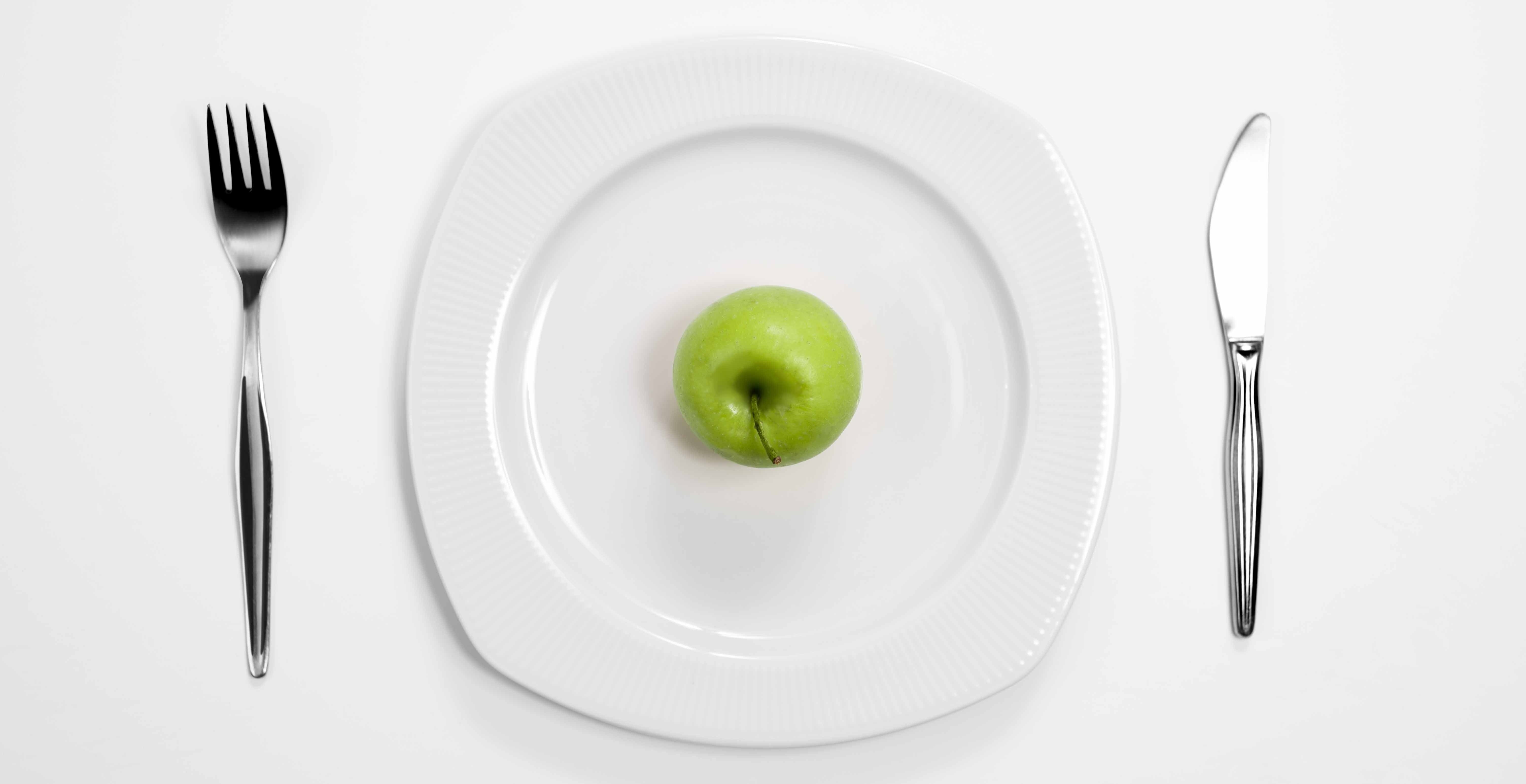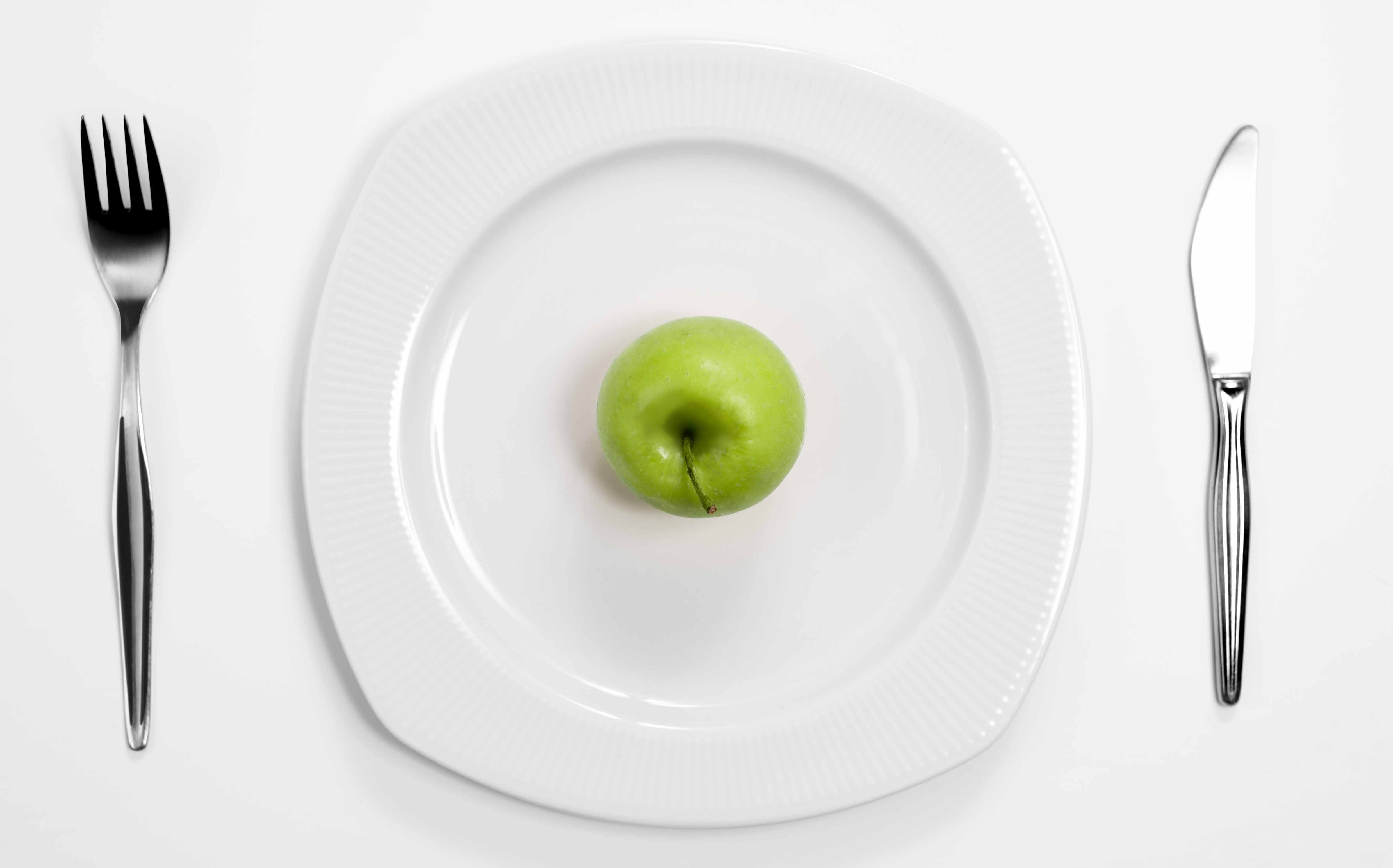Top 10 Myths About Weight Loss


When it comes to weight loss, the amount of disinformation about how, why, and what goes into creating healthy eating patterns and habits to do so is dizzying. Here the WW Science Team debunks the myths about weight.
Myth: There are certain foods, like apple cider vinegar, that can boost your metabolism and help you lose weight.
Fact: There is not sufficient or convincing evidence linking apple cider vinegar to body weight or metabolism.1 Health magazines and online articles constantly tout that certain foods, like apple cider vinegar or chili peppers, can boost your metabolism. For even a minimal effect, high doses would need to be consumed which generally isn’t palatable.2
Myth: I can’t lose weight because I’m older.
Fact: As we get older, our metabolism tends to slow down about 1-2 per cent per decade,3 which may make it harder to lose weight. A lower metabolism means that your body is burning fewer calories per day than it used to. To lose weight, you need to eat fewer calories than you did when you were younger and losing weight. However, the decrease in metabolism with age is mainly due to less muscle mass, which results from slowing down on physical activity. Therefore, the decrease in metabolism can be avoided by maintaining your physical activity routine.4
Myth: Eating small frequent meals is better for weight loss than eating larger meals spaced farther apart.
Fact: The amount of SmartPoints® you eat over an entire day, or week, is what matters most for weight loss—not when you eat them. Whether you eat the traditional three meals a day, or six smaller ones throughout the day, is up to you. It is recommended that you eat something roughly every three hours to help avoid feelings of extreme hunger, which often leads to overeating.
Myth: You need to drink a certain amount of water (hot, iced, with lemon, etc.) to lose weight.
Fact: While water impacts your body’s hydration, it has no calories and, therefore, does not contribute to weight gain or weight loss. Substituting water for any beverages you normally drink that contain calories (e.g. sodas, juices) will increase weight loss, as it will reduce the amount of calories consumed each day.5
Myth: It’s good to use at-home cleanses and detoxes.
Fact: There is no scientific evidence to support the use of over-the-counter or homemade detoxes at home.6 A true detox happens in a hospital setting for the treatment of drug overdose or heavy metal toxicity. Some advertisements claim that we need to detoxify our bodies from the build-up of pollutants, excess processed foods, chemicals in our home, etc.7 But, the reality is, our liver, kidneys, lymphatic system and gastrointestinal tract already cleanse and detoxify our bodies. (This may not be the case if you have a medical condition that affects the function of your liver or kidneys, but if this is the case, you certainly would not want to add untested detox products to your body.)
If you do decide to use over the counter detoxifying products, make sure you consult your doctor before using them.
Myth: You have to be physically active to lose weight.
Fact: By keeping within your SmartPoints® budget, you can lose weight without being active. However, studies have found adding physical activity can increase your weight loss by 20%8 and a regular pattern of physical activity is the single best predictor of long-term weight loss maintenance.9,10,11 Also, don’t forget there are many other benefits of physical activity, like improving mood12 and sleep quality13 and decreasing your risk for certain diseases, such as heart disease, high blood pressure, type 2 diabetes, and certain cancers.14 The most important factor is to move more in ways that are fun and engaging so that they are enjoyable and you will stick with them.
Myth: Smoothies are always a healthy option.
Fact: For weight loss, smoothies may not be the best choice. Although smoothies can contain healthy ingredients such as fruits and vegetables, nonfat Greek yogurt etc. they are a concentrated source of calories that are consumed quickly without giving your body time to register that it’s actually “eaten” something. Smoothies are liquids, which do not register in the brain the same way as eating solids does.15 For example, think of a whole orange; now think of that orange as juice (about ½ cup). Seems like less food, doesn’t it? When you drink something, it eliminates the act of chewing which may impact the signals between the belly and the brain.16
Myth: I am having trouble losing weight because I am not eating enough.
Fact: You may have read on the internet or heard family and friends talk about “starvation mode.” It is true that if you put your body under the extreme, rigorous conditions of starvation, your body appropriately compensates in a radical way. Therefore, if you lose weight too quickly, you’ll see more reductions in metabolism than you’d expect from your reduction in weight.
However, the scientific literature is absolutely clear that when you lose weight at a reasonable pace, the kind of pace that WeightWatchers recommends, the reduction in your metabolism is roughly proportional to your reduction in body weight.17 For example, if you were to lose 5% of your body weight, your metabolism would go down by 5%. This is because it takes fewer calories to support a smaller body as it performs activities, like resting, walking, and breathing. This is why your SmartPoints budget decreases over time. In no way does this mean that if you lose weight at a reasonable pace and your metabolism is dropping, that you’re going to be set up for weight regain or a “wrecked” metabolism.
Myth: Eating too much fruit can inhibit weight loss.
Fact: Fruits and vegetables aren’t magically calorie-free just because most of them are zero SmartPoints. We encourage you to eat fruits and vegetables because they are nutritious, satisfying, and tasty. It’s great if you’re eating more fruits and vegetables than you did before because you’re using them for healthy snacks, to bulk up your meals, or as a tide-me-over when you’re down to the last few SmartPoints value for the day or week. At the same time, if you’re eating more bananas because they’re “free,” then let your weight loss be your guide as to whether that’s working for you.
Myth: When I reach a certain weight, my weight loss stops because that is the set-point my body wants.
Fact: The “set-point theory” states that the amount of fat in our bodies is relatively stable.18,19 This theory has been clearly proven in animals, but is less clear in humans. What we do know is about 50% of body weight is determined by genetics,20 and the other 50% is determined by food and activity.21 Food and activity habits are things that you can change, through participation in a program like WeightWatchers. So even though part of your weight is determined by your genetics your eating and activity patterns have a significant impact on your weight.
References
1 Petsiou E, et al. Effect and mechanisms of action of vinegar on glucose metabolism, lipid profile, and body weight. Nutrition reviews. 2014; 72(10): 651-661.
2 Mary-Jon Ludy, George E. Moore, and Richard D. Mattes. The Effects of Capsaicin and Capsiate on Energy Balance: Critical Review and Meta-analyses of Studies in Humans. Chem Senses. 2012 Feb; 37(2): 103–121.Published online 2011 Oct 29.
3 Roberts SB and Dallal GE. Energy requirements and aging. Public Health Nutrition 2005;8(7a):1028-1036.
4 Atlantis E, Martin SA, Haren MT, Taylor AW, Wittert GA, Lifestyle factors associated with age-related differences in body composition: the Florey Adelaide Male Aging Study.Florey Adelaide Male Aging Study. Am J Clin Nutr. 2008 Jul; 88(1):95-104.
5 For a scientific study on sweeteners: Peters et al. The effects of water and non‐nutritive sweetened beverages on weight loss and weight maintenance: A randomized clinical trial. Obesity. 2016; 24(2): 297-304.
6 Klein AV1, Kiat H2. Detox diets for toxin elimination and weight management: a critical review of the evidence. J Hum Nutr Diet. 2015 Dec;28(6):675-86. doi: 10.1111/jhn.12286. Epub 2014 Dec 18
7http://www.health.harvard.edu/staying-healthy/the-dubious-practice-of-detox
8 Curioni CC, Lourenco PM. Long-term weight loss after diet and exercise: a systematic review. IJO 2005;29:1168-1174.
9 Jakicic JM. The role of physical activity in the prevention and treatment of body weight gain in adults. J Nutr 2002;132:3826S–3829S.
10 Pronk NP, Wing RR. Physical activity and maintenance of weight loss. Obes Res 1994;2:587–599.
11 Hill JO, Wyatt HR. Role of physical activity in preventing and treating obesity. J Appl Physiol 2005;99:765–770.
12 Penedo FL, Dahn JR. Exercise and well-being: a review of mental and physical health benefits associated with physical activity. Curr Opin Psychiatry 2005;18:189-193.
13 U.S. Department of Health and Human Services. 2008 Physical Activity Guidelines for Americans. Washington, DC: U.S. Department of Health and Human Services, 2008.
14 U.S. Department of Health and Human Services. 2008 Physical Activity Guidelines for Americans. Washington, DC: U.S. Department of Health and Human Services, 2008.
15 Cassady BA, Considine RV, Mattes RD. Beverage consumption, appetite, and energy intake: what did you expect? Am J Clin Nutr 2012;95:587-93.
16 Migquel-Kergoat S, Axais-Braesco V, Burton-Freeman B, Hetherington MM. Effects of chewing on appetite, food intake and gut hormones: a systematic review and meta-analysis. Physiol Behav 2015;151:88-96
17 Leibel RL et al. Changes in energy expenditure resulting from altered body weight. NEJM 1995;332(10):621-628
18 Harris RB. Role of set-point theory in regulation of body weight. RASEB J. 1990;4(15):3310.
19 Woods SC on behalf of the OAC. Body Weight “Set Point” Retrieved on August 17, 2017 from http://www.obesityaction.org/wp-content/uploads/Body_Weight_Set_Point_on....
20 Bray et al. (2016). NIH working group report—using genomic information to guide weight management: From universal to precision treatment. Obesity. 24: 14-22
21https://www.cdc.go
